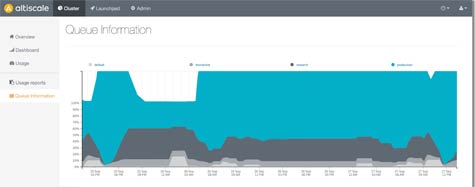When it comes to data, SAP has been pursuing a dual strategy. On the one hand, SAP is driving adoption of in-memory computing using the HANA database to enable both faster transactions and real-time analytics. The other half of the strategy is anchored by SAP HANA Vora, an instance of Apache Hadoop and Spark that SAP deploys to create a data lake.
This week at the Strata + Hadoop conference, SAP announced it is bolstering its data lake strategy by acquiring Altiscale, a provider of a managed cloud service based on Hadoop and the Spark in-memory computing framework.
Mike Eacrett, vice president of product development for Big Data at SAP, says SAP is adding what amounts to a “white glove service” for deploying Hadoop and Spark. Many IT organizations don’t have the skills required to deploy Hadoop and Spark on their own. SAP will continue to give customers the option of deploying Hadoop and Spark as implemented by Altiscale or deploying the SAP HANA Vora implementation as a service on the Altiscale cloud. But there will be no requirement to use HANA in order to subscribe to the Altiscale service.
Eacrett says the customers most interested will be organizations trying to operationalize Big Data within the context of an overall business process strategy that employs Big Data analytics to make better informed decisions.
“Organizations want to be able to use Big Data to drive repeatable processes,” says Eacrett.
In general, database vendors are embracing managed services in the cloud as a way to drive more data into their cloud platforms. Once that data becomes accessible to them, it’s only a matter of time before they can offer additional advanced analytics services tailored to the data any given customer generates. That approach eliminates the need to acquire dedicated IT infrastructure as well as having to hire the IT professionals needed to build and deploy these systems.
Naturally, it remains to be seen just how much organizations will invoke data as service offerings. Many organizations still prefer to maintain total control over their data lakes for either competitive reasons or regulatory requirements. However, Big Data delivered as a service becomes a lot more accessible to a much broader number of organizations than ever before.




